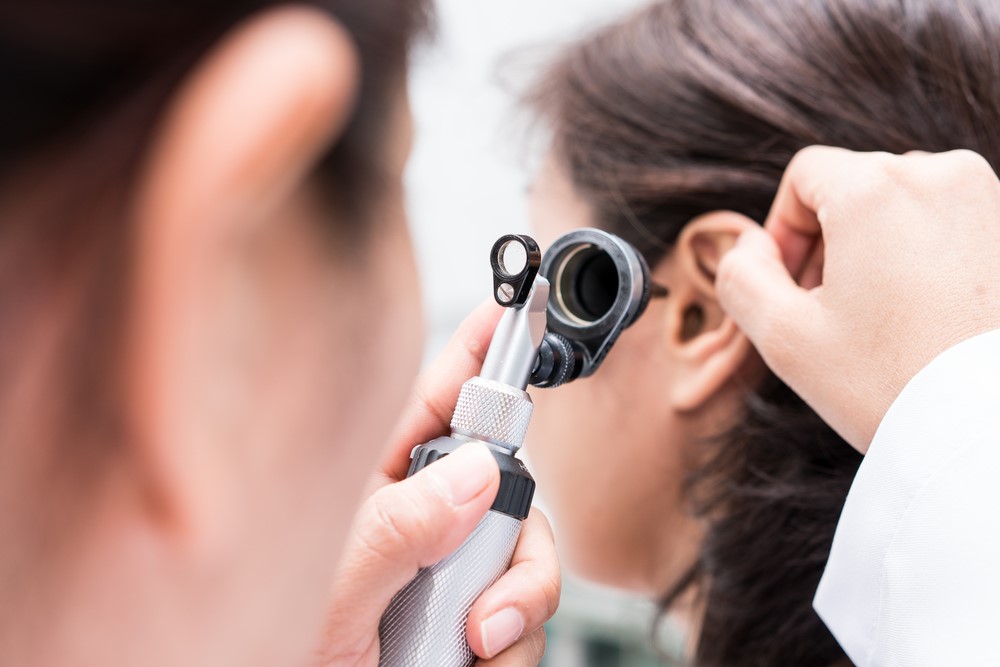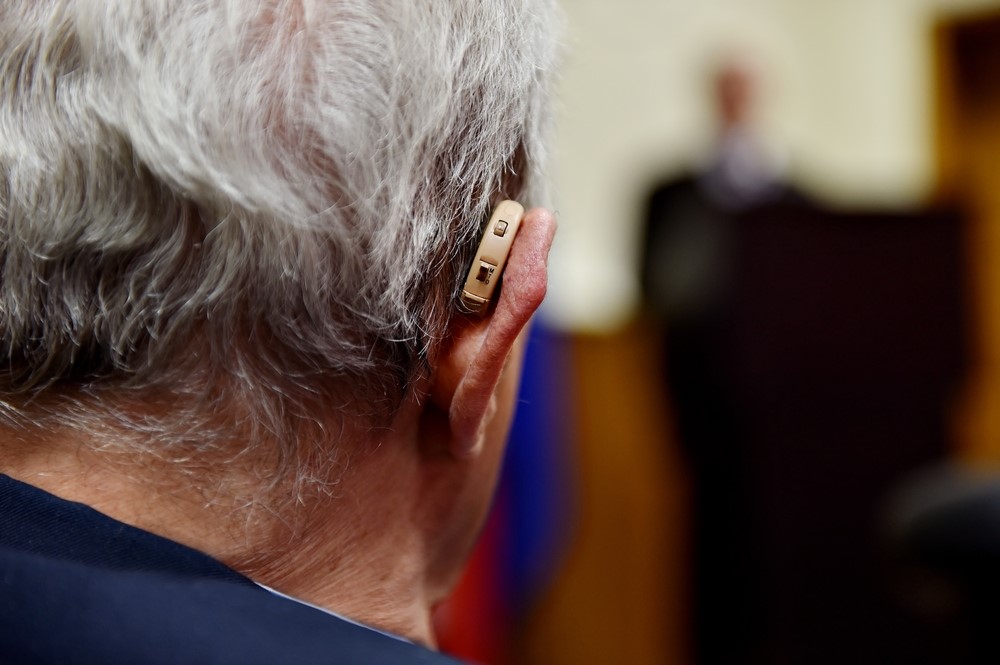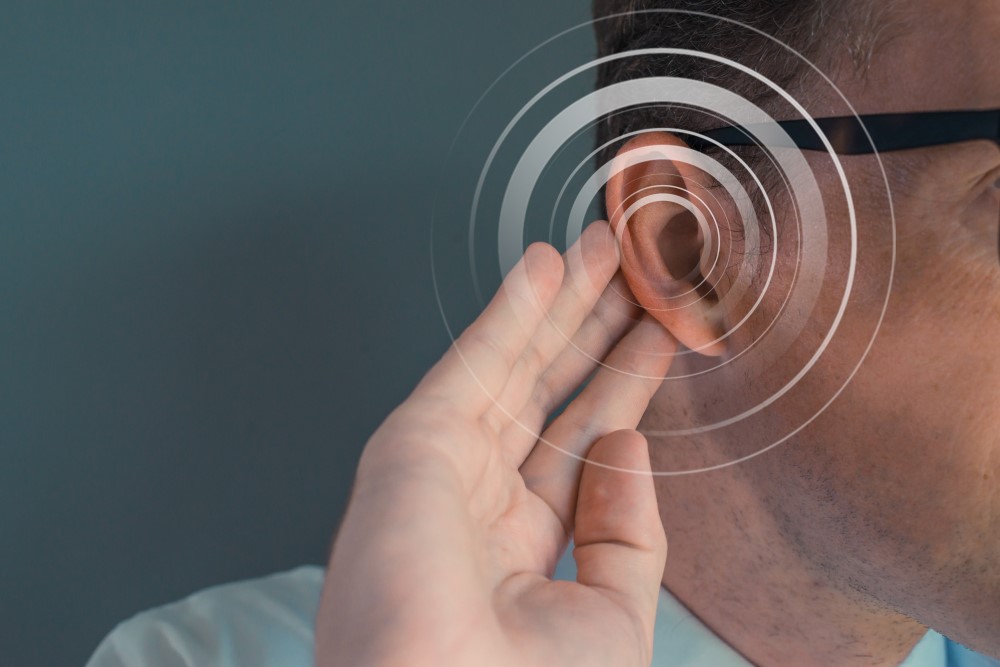Can You Hear Me Now? Hearing Loss and It’s Effects On Communication
There’s no denying the importance of the five human senses – touch, sight, hearing, smell, and taste. They are what allow us to interact with and experience the world around us.
An Inability to Communicate
More than any other sense, hearing is critical to our ability to communicate with each other. Certainly, touch and sight are useful in helping convey and interpret emotion – to see and feel what’s going on around us. Our hearing, however, allows us to put things into a specific context other senses cannot.
READ MORE: Effective Listening
Think about your world if you were unable to hear the following:
- Kids laughing.
- Birds chirping.
- The lyrics of a song.
- The dialogue from a movie.
- Someone saying I love you.
We’d miss out on not just the positive aspects of sound, either. Hearing works as a warning system. It can alert us to danger or aid in sensing when others are in distress, allowing us to intervene.
Imagine if you couldn’t hear a baby’s cries, tornado sirens, or a fire alarm.
Hearing loss may also lead to a person feeling isolated or alone. Communication is a basic tenet of human interaction. The inability to hear others speak can lead to poor work performance, sparse social interaction, or withdrawal from close friends and family.
Studies have shown that hearing loss may even lead to dementia in older patients, with years of struggling to hear and the social isolation that comes with it, taking its toll.
As with the other senses, it’s easy to take our hearing for granted. When it works, we pay little attention to our hearing capacity and rarely think anything of it. That, however, is starting to change. Based on recent statistics, hearing loss is a growing health concern for many.
According to the Hearing Loss Association of America, 48 million Americans suffer from hearing loss. It’s considered the third most common health issue for older adults.
The numbers are equally worrying for children. In the US, roughly two to three of every 1,000 children are born with a notable hearing loss in one or both ears. Close to 15% of children ages 6 to 19 suffer from hearing loss.
What causes people to lose their hearing? Is there anything you can do to prevent it? Let’s examine hearing loss, its symptoms and causes, and how to avoid losing it.
How the Ear Works

Hearing loss can affect anyone, whether permanent or temporary. For many individuals, hearing deteriorates as they age. To understand hearing loss and why it can happen, you first need to know how the ear works.
Consisting of three major parts – the inner, middle, and outer ear – your hearing ability begins with sound waves passing through your outer ear. This movement creates vibrations within your eardrum, a passageway between your outer and middle ear. Then, the eardrum and three small bones – the malleus, incus, and stapes – amplify the vibrations.
The amplified waves enter the inner ear and pass through the cochlea. Nerve cells within the cochlea then turn the vibrations into signals, which are transmitted and converted into sounds within the brain.
Hearing Loss Symptoms
Hearing loss is not always easy to identify. Our ability to hear is often reliant on our environment. Just because you find it hard to understand someone in a noisy restaurant doesn’t necessarily mean your ears are suspect.
There are, however, a few early signs that, if persistent, may indicate potential problems that are worthy of a visit to your doctor. The most common include:
- Problems understanding introductory speech or familiar sounds. This includes hearing muffled speech when someone speaks clearly or everyday sounds that seem dull or muted.
- We often have to ask people to repeat themselves, talk slower, or experience difficulty making out certain consonants or higher pitches.
- Require constant adjustment of the television or radio volume (up or down).
- Can’t discern what’s said in environments with much background noise.
- Misunderstand words in a conversation when more than one individual is speaking.
As noted, isolated incidents can happen to those with perfect hearing (for instance, someone may mumble when they talk). However, since hearing loss can occur very slowly, you may not realize that the above symptoms have become part of your everyday life.
Types of Hearing Loss

Medical professionals classify hearing loss into four types and four levels. The four major types of hearing loss include:
- Conductive Hearing Loss: Soundwaves are unable to reach the middle ear from the outer ear. Typically is treated with surgery or medications.
- Sensorineural Hearing Loss: An issue within the inner ear or from nerves within the ear.
- Mixed Hearing Loss: A combination of both conductive and sensorineural hearing loss.
- Auditory Neuropathy Spectrum Disorder: When soundwaves enter the ear but are not processed and transmitted to the brain correctly due to the inner ear or nerve damage.
The various levels at which hearing loss can occur include:
- Mild Hearing Loss: A person can hear most sounds, and easily carry on an individual conversation, but struggles to discern either soft sounds or to hear over moderate background noise.
- Moderate Hearing Loss: A person with moderate hearing loss must ask others to repeat themselves and struggle with conversations at what would be considered normal levels.
- Severe Hearing Loss: A person may only be able to discern loud noises or sounds. Conversations are challenging and, for most, require a hearing aid to understand them.
- Profound Hearing Loss: Unable to hear others speak, except when shouting or speaking incredibly loud. Can’t hold a conversation without an implant or hearing aid.
How Hearing Loss Occurs

Our ears suffer from a bombardment of sound. Many of us don’t recognize the stress our ears face every day. As we become conditioned to the consistently high noise levels, it can be tough to gauge if and how our hearing may deteriorate.
But with a better appreciation of the strain and the potential risk factors, we can take better care of our hearing. In most cases, hearing loss stems from one of the following:
Inner Ear Damage
As with the rest of our bodies, the ear deteriorates as we age. Nowhere is this more prevalent than with the nerves within the inner ear, where cellular decay also reduces the inner ear’s ability to deliver signals to the brain. Prolonged exposure to loud or excessive noise will speed up the corruption of the inner ear.
Earwax
Earwax, in small amounts, helps to keep our ears functioning correctly. It cleanses the ear canal, removing the buildup of hair, dirt, and dead skin cells that accumulate over time. Earwax also acts as an antifungal and antibacterial lubricant, keeping infections at bay. Too much earwax, however, will block the ear and prevent sound from reaching beyond the outer ear.
Rupture of the Eardrum
Loud, sudden noises, extreme pressure changes, and foreign objects within the ear can all lead to a ruptured or perforated eardrum.
Infection
Ear infections – inflammation of the middle ear – are common in children. Five out of every six children will have one before the age of three. Adults are also susceptible to infections and additional abnormalities that may impede hearing, including tumors or bone growth, particularly in the outer ear.
Hearing Loss Risk Factors
Many of the risks associated with hearing loss are well known. As we’ve already detailed with how it occurs, age and prolonged exposure to excessive noise pose the most significant risk to your hearing. Even a sudden burst of noise, such as a gunshot, can cause lasting damage.
When it comes to exposure, employees in specific industries, including construction or factory workers or military personnel, may be at higher risk of hearing loss.
Genetics may also be a circumstance in hearing loss. Numbers show that between 50% and 60% of hearing loss in infants is the result of genetics. Heredity too can also increase the potential for hearing to deteriorate as you age.
Other factors that lead to hearing loss include medications, illness, and trauma. In the case of medicine, certain antibiotics, chemotherapy drugs, treatments for ED, or excessive use of aspirin contribute to damage in the inner ear. Some medications can even cause tinnitus, which is a constant ringing in the ear.
With illness, anything that results in high fever or interrupts blood flow (high blood pressure or heart disease) may damage the cochlea. Injury to the skull or brain also increases the possibility of impairment to your hearing.
Hearing Loss Prevention

Thankfully, when it comes to prevention, maintaining healthy ears is very much about taking common-sense measures.
Limiting exposure to intense or excessive sounds is the number one way to prevent hearing loss. If loud noise is unavoidable, take steps to protect yourself with earplugs, earmuffs, or wear a safe distance away from the source. This is critically important if your job revolves around loud or harmful sound.
As fun as they are, leisure pursuits like concerts, hunting, or blasting music in your car can damage your hearing. Protect your ears when possible by taking regular breaks away from the loudness. Even a few notches lower volume can make a huge difference.
Learn more about Masters in Communication Disorders programs.
Finally, make regular ear checkups a priority. Like your eyes, routine hearing tests can help identify potential issues sooner and allow time to treat and prevent future hearing loss. Don’t take one of your most important senses for granted. Maintain a high level of communication with the world by keeping your diligence about hearing loss up and the volume down.
Read more in our Essential Guide to Speech Language Pathology and Everything to Know About Communication Disorders.
Recent Articles

The Importance of Good Etiquette
If you want to land a job, get into a good school, build a strong career, or maintain lasting personal relationships, it's important to know how to have good etiquette. For many years Emily Post was the leading voice for socially correct behavior. Though she lived half a century ago,…

Using Key Communication Skills To Manage Stress
Stress is something that happens to almost every person from time to time. It is…

Health Communication: Too Much, or Not Enough?
Historically, Americans have had a record of obsession with fads promising to help us preserve…

Autism: How it Affects Communication and the Way People are Working to Improve It
Once viewed and addressed as separate disorders, autism spectrum disorder (autism or ASD for short),…

Who’s Sorry Now? 5 Things to Say Instead of Apologizing
Unfortunately, even those with advanced degrees in communications are often guilty of saying "I'm sorry"…

Careers for Master’s in Communication Graduates
A master's degree in communication opens the door to a variety of career possibilities across…

Keys to Being a Better Public Speaker and Beating Your Anxiety
At some point in each of our lives, we will be required to give a…

Where Communications Majors Earn the Most (and Least)
"Communication works for those who work at it." – John Powell For those considering a…

Four Ways to Communicate Change in the Workplace
A new supervisor, a department consolidation, a new compensation policy- poor communication around these big…

YouTube Shooting Prompts Increased Need for Crisis Communication Experts
The recent tragic shooting at the Silicon Valley headquarters of Google-owned YouTube has highlighted the…